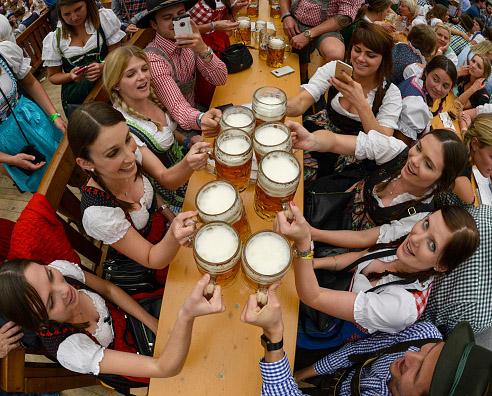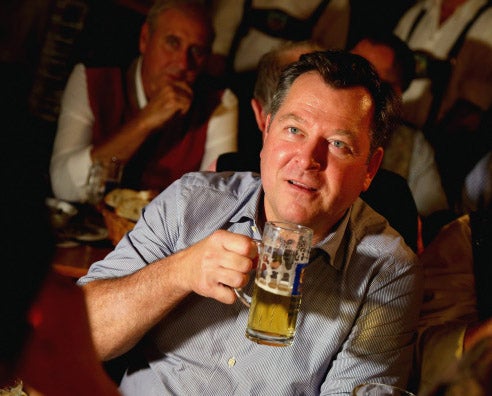Refugee crisis: Oktoberfest hit by falling crowd numbers due to border controls
Festival chief says new restrictions on travel meant fewer tourists were making it to the 16-day event

Your support helps us to tell the story
From reproductive rights to climate change to Big Tech, The Independent is on the ground when the story is developing. Whether it's investigating the financials of Elon Musk's pro-Trump PAC or producing our latest documentary, 'The A Word', which shines a light on the American women fighting for reproductive rights, we know how important it is to parse out the facts from the messaging.
At such a critical moment in US history, we need reporters on the ground. Your donation allows us to keep sending journalists to speak to both sides of the story.
The Independent is trusted by Americans across the entire political spectrum. And unlike many other quality news outlets, we choose not to lock Americans out of our reporting and analysis with paywalls. We believe quality journalism should be available to everyone, paid for by those who can afford it.
Your support makes all the difference.The refugee crisis has been blamed for the first attendance fall for six years at the world's biggest beer party as tightened border controls in Germany make travel through the country more difficult.
As Oktoberfest came to a close in Munich, it was revealed that the number of visitors fell to 5.9m - the lowest it has been since 2009.
Beer consumption was also down with 7.3 million litres (1.9 million gallons), or 400,000 large glass mugs fewer than last year, the Local reports.

Oktoberfest chief Josef Schmid told reports that the damp, cold weather was partly to blame for the fall but checks at the frontier were also likely to have kept some tourists from neighbouring countries away.
Local Bavarian authorities were said to have tried to keep the massive influx of party goers apart from the refugees who have continued to make their way to Germany from EU border countries.
8,000 refugees arrived in the region, which is on the Austrian border, in just one day last month as people choose to travel on towards Germany due to its wealth and broadly warm attitude towards them.
As a result of the massive influx German authorities have temporarily reinstated border controls which were abolished by the Schengen Agreement in 1985.
This has meant the German rail operator Deutsche Bahn suspended key services to and from Austria and Hungary.
As a result, the thousands of tourists who descend on the 205 year old festival every year have struggled to get to the city.
Join our commenting forum
Join thought-provoking conversations, follow other Independent readers and see their replies
Comments